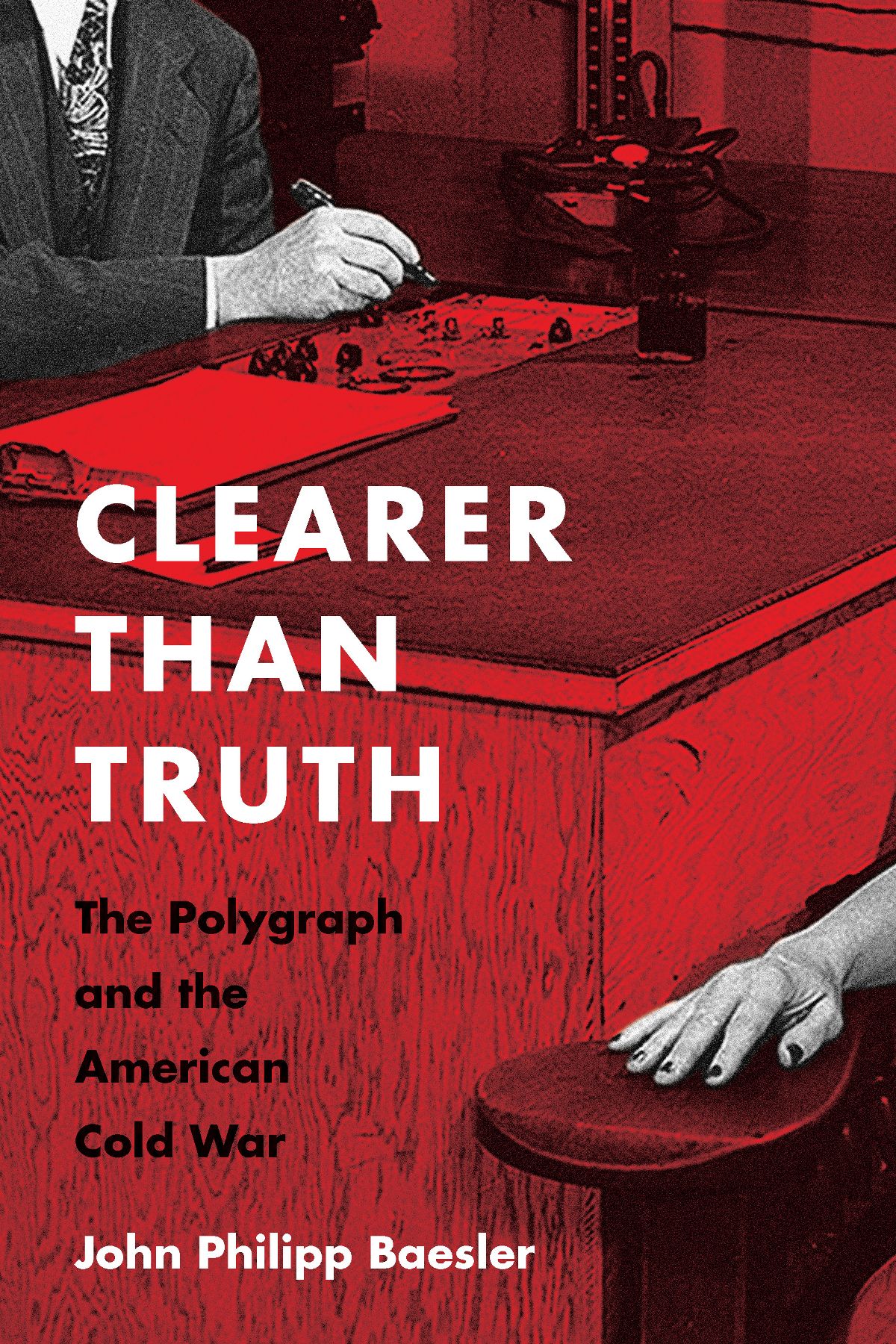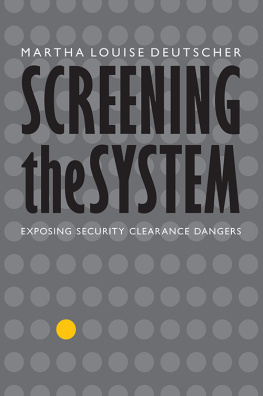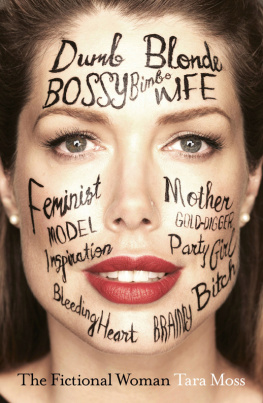
Clearer Than Truth
A volume in the series
Culture and Politics in the Cold War and Beyond
Edited by
Edwin A. Martini
and
Scott Laderman
Clearer Than Truth
The Polygraph and the American Cold War
John Philipp Baesler
University of Massachusetts Press
Amherst and Boston
Copyright 2018 by University of Massachusetts Press
All rights reserved
Printed in the United States of America
ISBN 978-1-62534-325-3
Cover design by Thomas Eykemans
Cover photo by Ed Westcott, Lie Detector Test, c. 1945. Courtesy of the U.S. Department of Energy.
Library of Congress Cataloging-in-Publication Data
Names: Baesler, John Philipp, author.
Title: Clearer than truth : the polygraph and the American Cold War / John Philipp Baesler.
Description: Amherst : University of Massachusetts Press, 2018. | Includes bibliographical references and index.
Identifiers: LCCN 2017050240 (print) | LCCN 2018012586 (ebook) | ISBN 9781613765647 (e-book) | ISBN 9781613765654 (e-book) | ISBN 9781625343130 (hardcover) | ISBN 9781625343253 (pbk.)
Subjects: LCSH: Lie detectors and detectionUnited StatesHistory20th century. | Lie detectors and detectionMoral and ethical aspectsUnited States. | Internal securityUnited StatesHistory20th century. | AllegianceUnited StatesHistory20th century. | United StatesPolitics and government19451989. | Cold WarPolitical aspectsUnited States.
Classification: LCC JK468.L5 (ebook) | LCC JK468.L5 B34 2018 (print) | DDC 327.1273dc23
LC record available at https://lccn.loc.gov/2017050240
British Library Cataloguing-in-Publication Data
A catalog record for this book is available from the British Library.
Some of this books main arguments come from two of the authors earlier publications: Die Macht des Lgendetektors im amerikanischen Sicherheitssystem [The power of the lie detector in the American security system], in Das Erbe des Kalten Krieges [The legacy of the Cold War], ed. Bernd Greiner (Hamburg: Hamburger Edition, 2013), 12847; and From Detection to Surveillance: U.S. Lie Detector Regimes from the Cold War to the War on Terror, Behemoth: A Journal on Civilization 8, no. 1 (April 2015): 4666. Thanks to the editors for permission to reproduce this material.
For Jenny and Lotte
Contents
I have never taken a polygraph test, and despite my awareness of the strictly limited significance of its results, the thought of maybe doing so in the futureif only for fun and gamesmakes me a bit jittery. Such is the aura of intimidation attached to the machine and the rickety curves it produces when hooked up to a body. It is this aura that turned me toward exploring the various ways in which the history of a technology that promises relentless pursuit of truth intersects with American Cold War history and the development of the U.S. national security state.
This book investigates how polygraph interrogations first found their way into use by agencies of the American federal government in the context of the emergency of war, and how they subsequently became an established sword and shield of national security as part of the American Cold War. In a struggle that U.S. officials defined as a life-or-death contest between American fair play and communist duplicity, I argue that the polygraph offered rigorous objectivity, sustaining American core values while facilitating the unremitting pursuit of enemies. Yet polygraph interrogationsscientifically questionable and inherently confrontationalelicited protestations from citizens who felt their conscience and honor violated. In the wake of the profound crisis of legitimacy that American national security agencies, particularly the Central Intelligence Agency, experienced after the late 1960s, the tide of public opinion turned decisively against the polygraph. And yet, entrenched in the permanent bureaucracies that the Cold War had created, the polygraph survived various attacks by Congress and civil liberties advocates, ready to reemerge with renewed support after the attacks of September 11, 2001. I maintain that the story of the polygraphs Cold War career illustrates the multifaceted, contingent political and social negotiations that went into the creation of the American Cold War. I also argue that the persistence of the polygraph is a powerful statement about how bureaucratic practices that began as emergency measures came to be permanent, as if carved into the marble of the monuments along the national mall in Washington. Because national security has become so embedded in daily political discourse, I suspect that most Americans do not stop to think very often about how they came about framing the purpose of their government and the civic values it represents that way. All the more crucial, I believe, to retrace our steps.
As somebody who came to the United States to attend graduate school, I became aware of the ideological ambiguity of American civic nationalism long before I took my first course in American history. Being a country of immigrants, open to anybody who is willing to live by its ideals and offering a level playing field to all, is a source of collective pride for most Americans. And yet, underneath the affirmation of this high ideal, one can easily pick up a murmured lament that the social order that maintains American values is fragile. Consequently, Americans from the beginning have sought to exclude those they deemed unworthy of the privilege of entering the country or participating in its civic life. As a German born long after 1945, the moment when I checked the no box next to the question on the immigration questionnaire that inquired whether I had ever been a member of the Nazi Party, formed the first small echo of that long history in my mind. Ever since, the elaboration of national security in American history has been a preoccupation of mine; studying the history of the polygraph allowed me to focus my attention on a specific aspect of that history, bringing together in the process perspectives from diplomatic, political, and intellectual history, as well as the history of science and technology. At the same time, I always kept the big questionnamely, what the history of polygraph says about America and Americans in generalin mind. While the secret nature of some of that history kept a number of lines of inquiry closed and at times only permitted titillating glimpses into events, it is my sincere hope that this book offers a fresh perspective on the dialectical relationship between measures to keep the nation secure and the perpetual feeling of insecurity that drives the implementation of those measures.
On the journey from developing my first academic interest in the history of U.S. foreign relations to finishing this manuscript, I have incurred many debts that I am happy to acknowledge. I begin with Clemens Zimmermann and Detlef Junker, who kindled my curiosity for American history many years ago at Ruprecht-Karls-Universitt Heidelberg. At Indiana University, I am grateful to Nick Cullather for the invaluable advice and guidance he gave me during my graduate studies and beyond. John Bodnar, Jim Capshew, and Dror Wahrman asked pertinent questions that sharpened my focus as I began to turn my dissertation into a book manuscript. My thanks also go to Ken Alder, Gordon Barland, Susan Carruthers, Barbara Cornblath, Martin Endre, Bernd Greiner, David Johnson, Melissa Littlefield, Chad Parker, John Prados, Regina Ammicht Quinn, Benjamin Rampp, Chris Stone, and Klaas Vo, who all offered generous feedback and suggestions, whether in writing or in conversation. I am particularly obliged to my wife, Jennifer Stinson, and my awesome father-in-law, Robert Stinson, both of whom are fine historians in their own rights, and to Allison Peters, Ann Garcia, and Sabine Bickford; their careful reading improved the manuscript immeasurably. Finally, I am grateful to Matt Becker, Rachael DeShano, Eric Schramm, and everybody at the University of Massachusetts Press for guiding the manuscript through the publication process.
Next page




